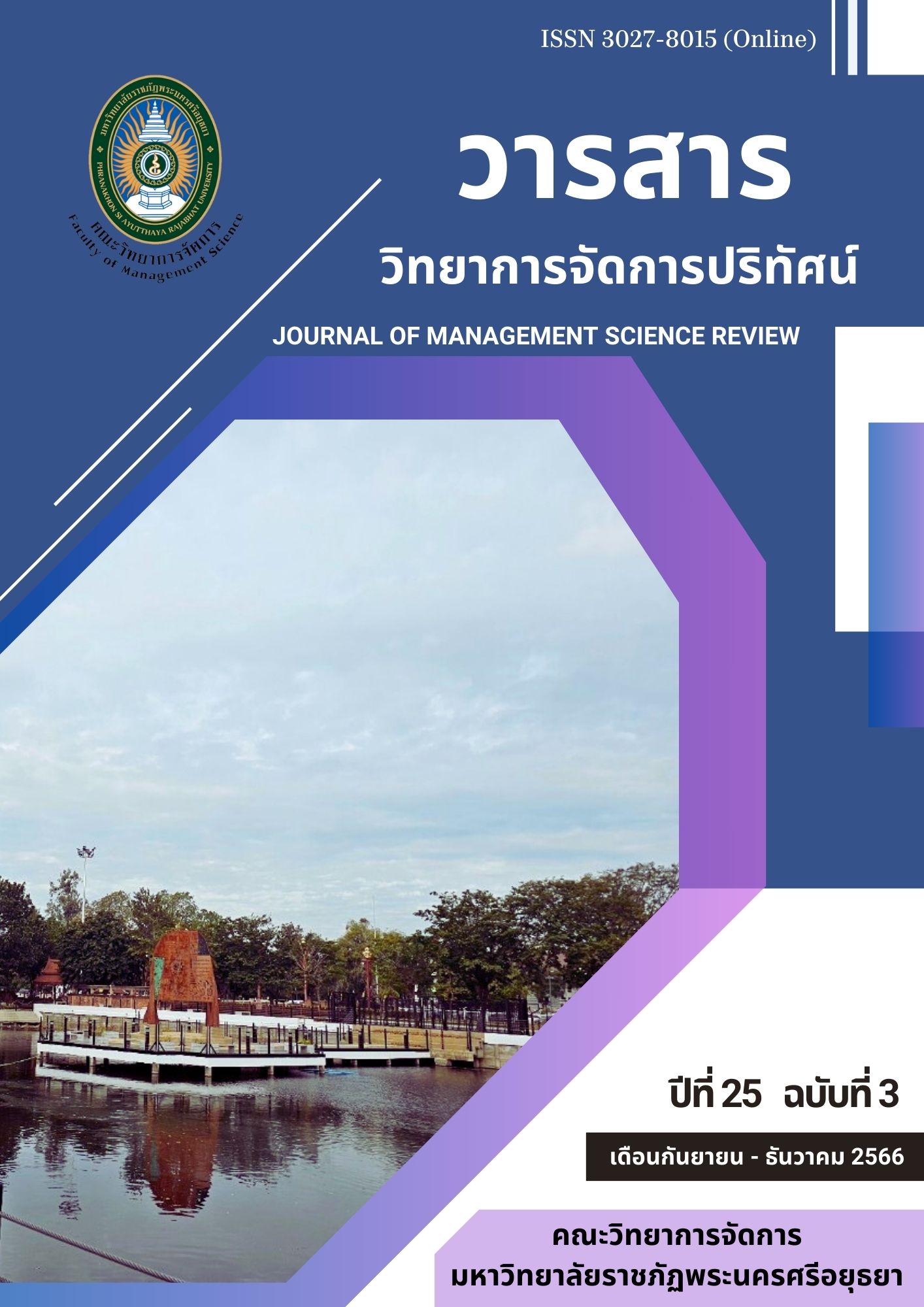Development on a QR Code Technology system for Safety Inspection of Forklifts : the case of a warehousing company in Phranakhon Si Ayutthaya Province
Keywords:
QR Code Technology, Safety Inspection System, ForkliftAbstract
The objectives of this research were 1) to develop a forklift safety inspection system using QR codes, and 2) to assess the satisfaction of the forklift with the safety inspection system. The research utilized a specific purposive sample of 12 forklift drivers. The tools employed included the QR code-based safety inspection system and a satisfaction questionnaire. Statistical analysis used percentages, means, and standard deviations.
The objectives of this research were 1) to develop a forklift safety inspection system using QR codes, and 2) to assess the satisfaction of the forklift with the safety inspection system. The research utilized a specific purposive sample of 12 forklift drivers. The tools employed included the QR code-based safety inspection system and a satisfaction questionnaire. Statistical analysis used percentages, means, and standard deviations.
The research findings indicated that the QR code-based forklift safety inspection system effectively collected and statistically analyzed data related to usage, maintenance, and various services. The system demonstrated clear data storage capabilities, aligning with the management's policy of reducing paper usage and adopting technology for data storage. Furthermore, the system proved applicable for monitoring occupational health and safety management systems and central security functions. The study's satisfaction level regarding the development of the QR code-based forklift safety inspection system was exceptionally high (= 4.58, S.D. = 0.431).
References
Asa Chumraksa. (2019). Developing the potential of managing laboratory information system using QR Code technology. Retrieved from http://reo16mnre.go.th/reo16/frontpage.URL 2019-08/20190822_jrlfdede.pdf.
Cresswell, J. W. & Clark, V.P. (2011). Designing and conducting mixed methods research (2nded.). London. : Sage Publications.
Denso Wave. (2016). Focus Group DisCussion. Retrieved from http://stafa.sakura.ne.jp/stafadesign/qrcode_140804/en/codes/logoq.ht.
Industrial Safety Technology Promotion Division. (2020). Statistics accidents at factory in 2020. Retrieved from http://sau-jeddah.mol.go.th.
Phanomwat, N. (2016). Definition of forklift. Retrieved from http://digital_collect.lib.buu.ac.th.
Pintusorn, et al., (2017). QR Code on mobile for durable articles management. Journal of Sripatum review of Science and Technology. 9(1), 88-97.
Rodchan, M., Inthasombat, U. & Muangpool, T. (2018). QR Code Based Application for Class Attendance Recording of territorial Defense Student. Journal of Information Technology Management and Innovation. 5(ng1), 88-96
Samranjai, S. (2017). Applying QR Code for Accessing through online Databases in Phetchaburi information Technology Campus Library, Silpakorn University. Journal of PULINET. 4(3), 216-222.
Social Security Office. (2020). A Situation of danger or illness 2017. Retrieved from http://sso.go.th/ wpr/assets/upload/802234.pdf.
Subbamre, R. (2016). Research methodology in Public Health. Bangkok: Odeon Store.
Thailand Institute of Occupational Safety and Health. (2021). Safety for Forklift. Retrieved from http://tosh.or.th/index.php/blog/item/818-forklift.
Thitima, et. al., (2020). Stock Management Application and Check Repair Status of wind turbines by QR Code case Study Three and Triple T Campany Limited. Journal of Industrid education. 14(2), 10-23.
Usa, et al., (2019). The development of scientific equipment and hazardous waste management system in the laboratory using QR Code in conjunction with Google drive service. In National Research Conference for Academic Support Personel in Higher Education Institution “Thongkwao Academic 62”. Chiangmai: Chiangmai University.
Chaichanaviro, U., & Vanthum, C. (2017). Content Validity testing of research tools. Journal of Nursing and Health Science. 11(2), 105-111





